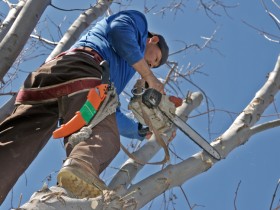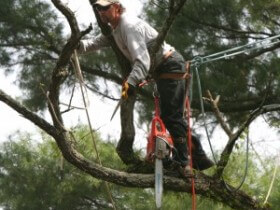Establishing an organic garden is a smart way to work towards a healthier diet. It does require some effort, in order to grow, though. This can leave you wondering where to start when it comes to organic gardening.
Use annuals and biennials to enliven your flower beds. Annuals and biennials that grow quickly can really wake up your flower beds, and they allow you to have a new garden look every season or every year, if you choose to. These kinds of flowers are also excellent for filling in gaps between shrubs and perennials in sunny areas. Notable varieties include cosmos, rudbeckia, petunia, hollyhock, marigold and sunflower.
Try using climber plants to cover up your fences and walls. Climbing plants are great for hiding hideous fences and walls, and they usually grow within a season. They can cover an arbor, or grow through trees and shrubs. Sometimes the plants will require being tied to supports, but some climbers will attach themselves naturally. Plants such as clematis, wisteria, climbing roses, or honeysuckle are always great choices.
You could try to boil weeds if you are trying to remain organic. A pot of boiling hot water can be one of the most safe weed destroyers. All you need to do is apply boiling water right to the weeds you want to get rid of. Be careful not to get any on the plants you want to keep. What this does it essentially kill the weeds by damaging their roots. The result is that those weeds are unlikely to regrow.
A great garden starts from the seeds and not from the plants. The most “green” way to create a new garden is starting from seeds. Packaging materials for many plants utilize plastics that are not recyclable, so avoid these containers and choose instead to sow your garden with seeds or utilize organic pots.
When deciding on which plants to include in your landscaping projects, consider evergreens which produce colorful berries. These types of trees can offer your garden a splash of color, especially during the winter when all other plants and trees have lost their hues. Some examples include Holly, Snowberry trees, Winterberry and similar plants.
Don’t use broad-spectrum pesticidal products anywhere in your gardening area. These pesticides can kill the useful insects that work as predators to pests. Since these pesticides often affect the good bugs more than the bad, using them can actually increase your pest problem. If this happens, you just fuel an expanding cycle of needing even more pesticides.
Select a specific type of plant to be the focal point of your garden. Gardens are like art; you need to give the piece (or garden) an initial focal point. Frequently, it will be a plant that’s very different from others in the neighborhood.
You need to be smart when it comes to watering your garden. Take advantage of a soaker hose so that you don’t need to water every single plant indiv idually, or have to keep filling up your watering can. To avoid damaging delicate plants, you should water them with low pressure. Letting the soaker hose do the work frees you up to turn your attention elsewhere.
As stated from the above article, there is a good amount of effort, work and research involved when you begin growing an organic garden. Furthermore, you will only see your garden blossom with consistent tending. If you keep the tips provided here in mind, you can find your way to organic horticulture success. Enjoy your harvest!
A number of people would like to learn more about mdyhome.com, but not everyone knows where they should look. This article can help jump start your learning experience. You do, however, need to apply what you’ve learned to realize any benefit from this article.




